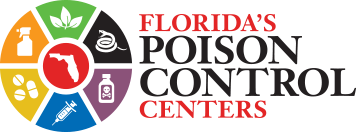For Adults & Seniors
Medication Safety
Medication Safety Tips
Make it easy to see the medication:
- Wear glasses.
- Use a magnifier to read small text.
- Use strong lighting when reading labels.
- Ask for large print labels.
- Create a routine for taking medicine at the same time as another daily event, such as meal time or bath time.
- Create a way to remember when doses of medicine have been taken. Ideas include:
- Pill minders with spots for four doses per day
- Pill timers which beep a sound at medication time
- Write dose times on a calendar and make a check mark after each dose is taken.
Questions to Ask Your Doctor About New Medications
- What is the name of the medication?
- What am I taking it for?
- Are there any side effects?
- How long do I take this medicine?
Questions to Ask Your Pharmacist About New Medications
- Is the medicine taken with food or on an empty stomach?
- Should certain food, drink or other drugs be avoided?
- Is an easy-opening cap available?
- Is a large-print label available?
Herbal Products
Facts About Herbal Products and Herbal Supplements
Fact: The U.S. Food and Drug Administration does not test herbal products for safety and effectiveness. This means that it is not known if an herbal product or supplement will help or harm someone your age, with your disease, or taking your prescriptions.
Fact: Taking certain herbals when taking prescription drugs can cause interactions. This means that one drug can counteract the other, making it ineffective. Or one drug can cause the other drug to be too strong.
Talk to a doctor or pharmacist before purchasing or taking herbal products.
Herbal products plus prescription medications equal potentially dangerous combinations.
A “natural” product may not be safe or effective! Herbal medications are not recommended for children, pregnant or nursing women, the immunosuppressed, or elderly men or women on prescription drugs.
Herbal Supplements Interactions Chart.
Source: Klasco RK (Ed); AltCareDex® System. Truven Health Analytics. Greenwood Village, Colorado (Edition espires Dec 2014)
| Diet /Herbal Supplement | Medication | Possible Interaction or Side Effect |
|---|---|---|
| Aloe | Lanoxin | May lower potassium |
| Co-Enzyme Q-10 | Blood thinners | Increased risk of bleeding |
| Dong Quai | Blood thinners (Aspirin, Coumadin, Plavix, Ticlid) | Increased risk of bleeding |
| Echinacea | Immunosuppressants (Cyclosporine) | Decreased effectiveness of medication |
| Fish Oils | Blood thinners | Increased risk of bleeding |
| Garlic tablets | Blood thinners (Aspirin, Coumadin, Plavix,Ticlid) | Increased risk of bleeding |
| Ginkgo leaf, Biloba | Blood thinners (as above), Thiazide diuretics | Increased risk of bleeding, elevated blood pressure (BP) |
| Ginkgo leaf, Biloba | Seizure lowering drugs,Trazodone (Desyrel) | Decrease effectiveness, possible seizures |
| Ginseng (American, Panax, Siberian) | Blood thinners (as above) | May increase risk of bleeding |
| Red Yeast Rice | Immunosuppressants, Cyclcosporine | Muscle damage |
| Saw Palmetto | Blood thinners | Increased stroke risk |
| Glucosamine | Shellfish allergy | May cause allergic reaction |
| Goldenseal | Sedatives | May see additive effects, intensifying sedation |
| Hawthorn | Digoxin | Reduced effectiveness of digoxin |
| Kava-Kava | CNS Depressants (Alcohol, Barbiturates, Benzodiazepines-Ativan, Valium, Xanax) | Increased sedation and risk of liver damage |
| St. John’s Wort | Crixivan (Indinavir), Cyclosporine, Coumadin, Digoxin, Tegretol, Theophylline | Reduced drug effectiveness and potential Worsening of disease |
| St. John’s Wort | Antidepressants including: Celexa, Paxil, Prozac, MAOI’s | Toxic side effects |
| Valerian | CNS Depressants (Alcohol, Barbiturates, Benzodiazepines) | Additive effects may intensify sedation |
Medication Disposal
Disposing of Unneeded Medications at Home
Remove labels from pill containers. Mix pills with liquid to dissolve them. Stir in water, coffee grounds, dirt or cat litter. Seal container with tape and hide in an outdoor garbage can.
If you choose to throw out the medication while in the bottles, remember to spoil them (as described above) and black out all personal information on the label. Be sure to take old medications to the curb on trash day so that bottles or pills are not in trashcans and accessible to small children.
Medication Disposal Programs
Unused or old medications can present a risk to children, teens and adults. Expired medications lose their effectiveness, and any medication can be attractive (and potentially deadly) to children. Florida’s Poison Control Centers recommend frequently cleaning out medicine cabinets and safely disposing of unneeded products. Many communities have drug “take-back” programs offered through local law enforcement agencies or drug abuse prevention coalitions. These programs offer a safe and anonymous way to dispose of medications that could become dangerous to kids and teens. Collier and Broward Counties’ “Operation Medicine Cabinet” and Palm Beach County’s “Operation Pill Drop” are two such local initiatives.
The federal Drug Enforcement Agency also coordinates drug “take-back” events through local police or sheriff’s departments twice a year. Click here for more information about these events.
Members of the public may click here to find a medication drop box near you.
Links/Videos
Product recalls & safety alerts
Disposal of Unused Medicines: What You Should Know.
Search by zip code for a pill disposal site near you: DEA (PDF)
How to dispose of medications at home: FDA (PDF)
How to dispose of medications in environmentally safe way: EPA (PDF)
Download Our Fact Sheet
Download Our Medication Safety Tips Fact Sheet
Improper medication use is a serious danger for adults and seniors. Protect yourself and your loved ones by following easy safety tips, and know the right questions to ask your doctor and pharmacist.

